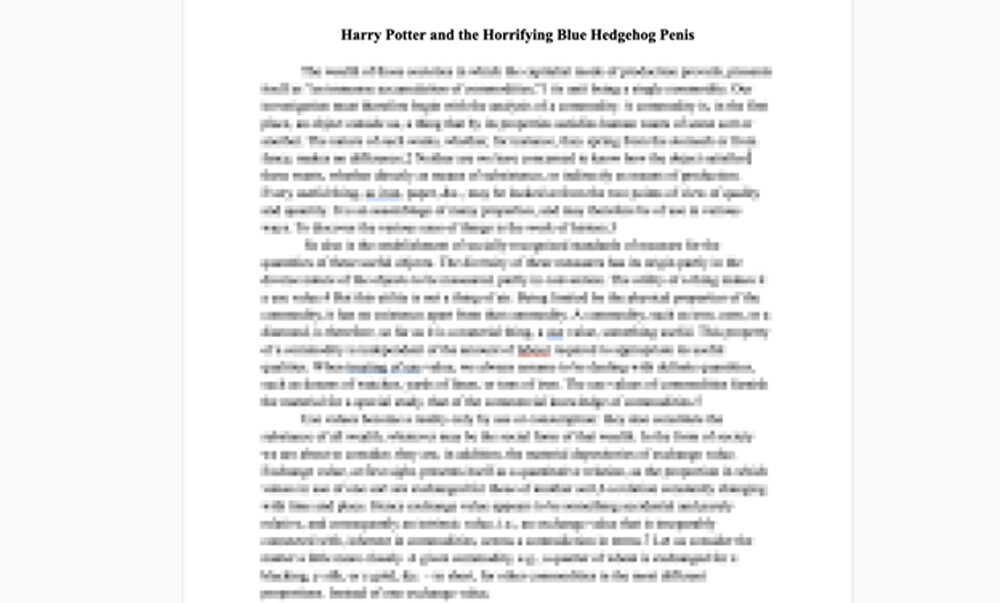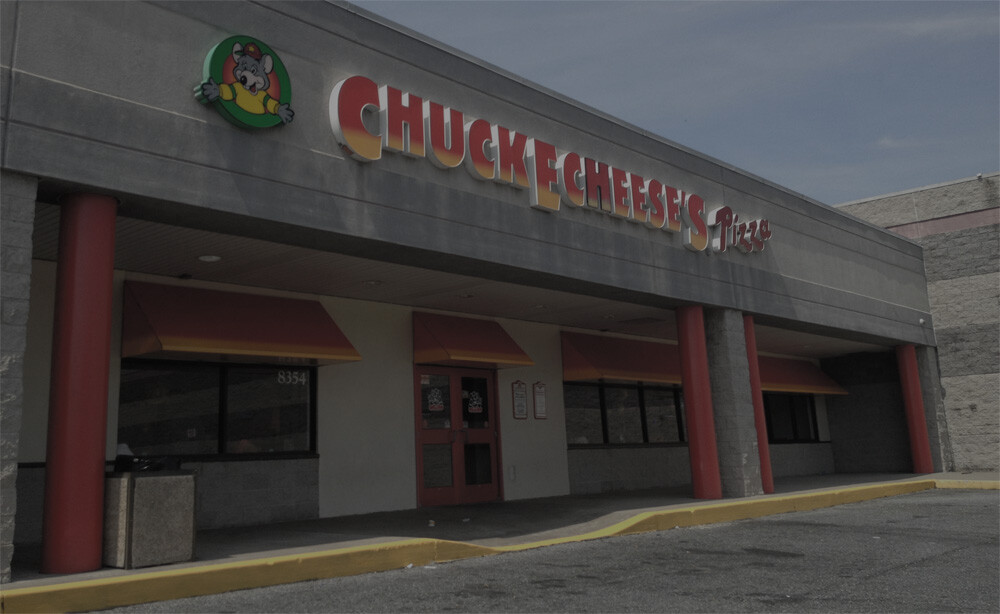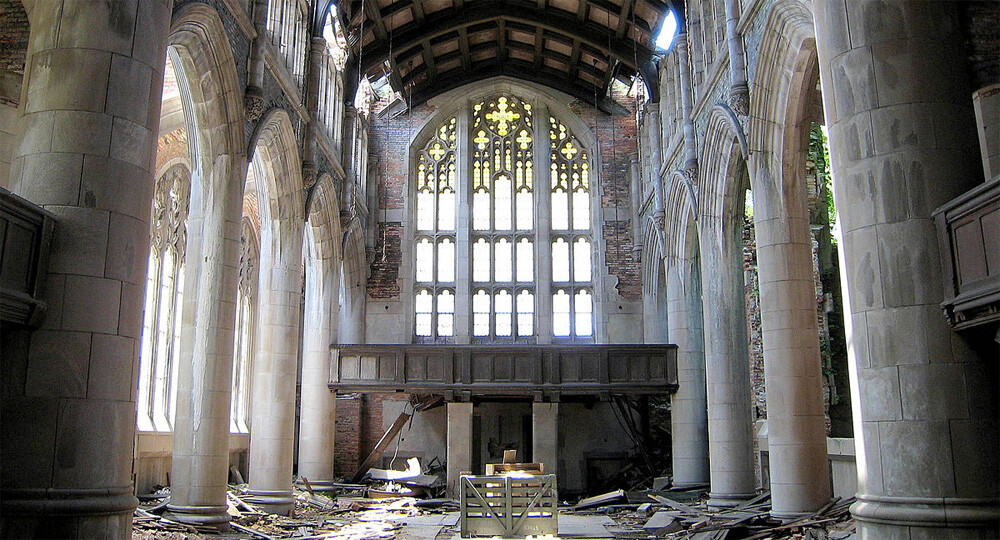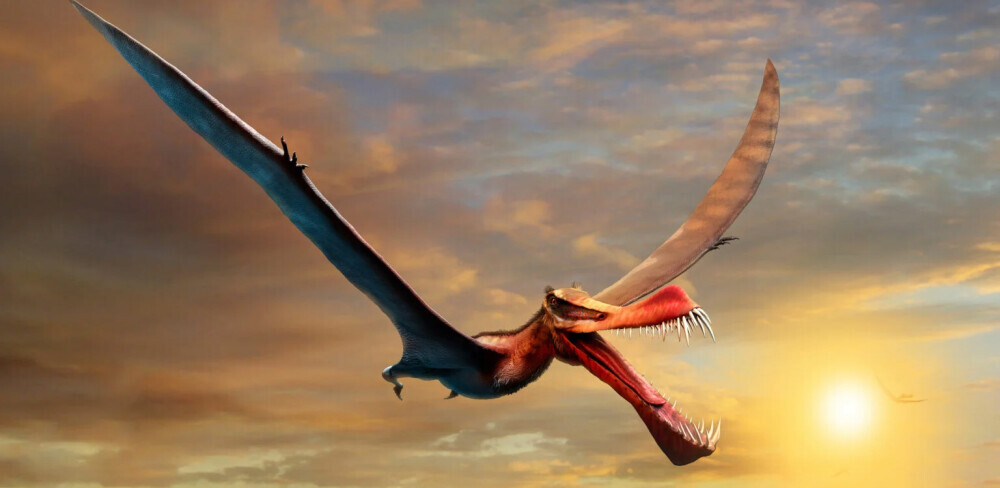What Makes The 'Breath of the Wild' Story Good: Failure

Recently, IGN counted down a new list of their Top 100 Games of All Time, and at the very top of the pile was The Legend of Zelda: Breath of the Wild. It’s a good list, apart from a truly damning lack of Katamari Damacy, and I agree that BOTW is the greatest game ever made.
I’m not going to bore you with all the ways the game is good. If you’ve played it, you know how it embraces physics, puzzles, exploration, and imposing women to create a supremely satisfying whole. Instead, I’m here to talk about an aspect of the game that’s often derided as one of the game’s weak spots: its story. I believe that the story is actually incredible, possibly even unique in videogames, because it explores the concept of failure.
The Story Behind The Story
Taken at face value, the narrative story of BOTW is as predictable as a Netflix true crime documentary that dares to ask “does this closed case actually have a darker, secret explanation?” and takes eight episodes to answer “No.” Link will eventually defeat Ganon and save Zelda, the Chosen One triumphs over the Ultimate Evil definitely super forever this time, hooray, roll credits. In that sense, yes, the game’s story is weaker than a trucker suffering from Combos Pizza-Blasted Malnutrition (also known as Road Scurvy).
Don't Miss
But we’re doing ourselves a disservice if we only think of the “story” of a game as what’s given to us in the narrative. As I’ve written before, videogames present us with a story vehicle that books and movies can’t replicate—not even masterpieces like AirBud CMXVII: Bareknuckle PAWxing. Unlike other media, games give us a world to look at and explore. In books and film, what you see is completely controlled by the creators of the work. If the fanfic author wants you to see the deeply uncomfortable sex scene between Harry Potter and Sonic the Hedgehog, then by god you’re going to see all two hundred thirty seven pages of it.

But videogames are different. Because many of them present a large world to explore, the creators aren’t the ones who decide what you get to see: you, the player, are. Games can litter the world with little details that tell a larger story than what you get from narrative bottlenecks. Books and cinema are peering through a keyhole—videogames are walking through the door and into a whole world that lies beyond. And from the details of that world we can infer a richer story.
Which leads me to my next point:
The World Of BOTW Is A Product Of Failure
Failure.
It’s a word that conjures up lots of negative feelings, like mandatory children’s birthday party attendance or weirdly warm public toilet seat. And Hyrule as it is portrayed in BOTW is a world created by failure. A world defined by Link’s failure to stop Ganon a century before the events of the game take place. Everywhere we look are reminders of the cost of Link’s failure: one of the first things we see is the once-stately Temple of Time reduced to ruin, like a common Detroit Chuck E. Cheese.

Failure is kind of a taboo subject in media, isn’t it? Partially because of the way a satisfying narrative is shaped, it’s much harder to stick the landing if your book or movie or erotic shadow puppet theatrical production ends with your hero just completely sucking and not accomplishing a single thing they set out to do or growing as a person as a result of their failure—it’s probably why my autobiography isn’t selling well. We love stories where the failure happens in the middle, not the end—what Vonnegut called “Man in a Hole.”
It’s comforting to believe you can achieve anything, overcome any adversity, if you just keep trying. Another reason we don’t see too much media grapple with failure in a meaningful way is because, by definition, if you’re making media that will be consumed by large swaths of the population, you’re doing okay. WGA scale minimum for network primetime TV is what, almost $10,000 a week? I’m not saying everyone writing TV and movies has never experienced failure, I’m just saying it’s something they’ve clearly overcome.

There’s plenty of media out there that does address failure, of course—it’s part of why The Venture Bros. is probably my favorite TV show of all time. Because the fact is, you’ll probably fail in life. Failure is probably the single defining feature of my life, and I don’t think that’s sad—it just means I’ve kept on trying, way past the point where common sense or an appreciation of my own limitations would dictate stopping. Because I’m an American, goddammit!
Fear Of Failure
Media, especially media popular with young people, is rife with the idea that failure is tantamount to the end of the world. This is often literal: Dormamu wants to devour the universe, Sauron wants to destroy Middle-earth, the bad guy in The Hunger Games wants to steal all the hotdogs needed for the Big Hotdog Eating Contest (I have not seen The Hunger Games). Over and over again we see fiction where the world will be plunged into One Thousand Years of Darkness if The Chosen One cannot fulfill The Prophecy.

Paramount Pictures
What makes the story of BOTW interesting, maybe even subversive, is that it explores a world where the hero has failed. Not just that: the world of BOTW isn’t a grim dystopia of grays, browns, and more relentless misery than an album by Mount Eerie. The world of BOTW is lush and green and beautiful.
If you travel to Hateno Village, it seems almost … pastoral? Maybe even idyllic? Wind rustles the grass, children run and play, the soundtrack is provided by a gently sighing bagpipe. The people there seem only vaguely aware that the world “ended” a century ago. Is this what the Apocalypse looks like? Cause it kinda seems better than paying over $2,000 a month in rent and having to coexist with comment sections.

Nintendo
Throughout his journey, Link discovers several cities and settlements, including those populated by the Zelda universe’s zany alien races: rock-eating trolls, amphibious fish hybrids, flying bird-people, and women. If it wasn’t for the impending attack by Calamity Ganon, they’d all be fine on their own. Compared to the cramped grim urbanism of Castle Town as depicted in The Legend of Zelda: Twilight Princess, the world of BOTW, the world where Link screwed up so bad all his friends died, an absolutely colossal failure at every level, just really Kuechenberging it up—this world might actually be doing … better?
The End Of The World Isn’t The End Of The World
Something that BOTW gets that a lot of post-apocalyptic media doesn’t is that that an apocalypse doesn’t always feel like an apocalypse. I’ve written before about how I’m from Gary, Indiana, an area so renowned for being terrible it was even a punchline on Futurama. It’s probably as close to post-apocalyptic as you can get outside of an active disaster area in the US. In fact, a post-apocalyptic movie was once shot there and the set decorator cleaned up the streets because they felt it was over-selling the whole “end of the world” thing.

That’s all true. But you know what else? It’s not just a relentless misery circus. People go out to eat at Big Daddy’s for some of the best barbeque in the state. People hang out and laugh and watch bad movies together. Humans are resilient, and we want to establish a baseline of normalcy. Sure, there might be killer squidbots outside of Hateno Village, but nobody there thinks of themselves as living in a dystopia.
Because the end of the world is never the end of the world, just the end of that world. The Romans thought the collapse of the Empire was the End of History, but it wasn’t too long before children were using what was left of the Forum as a playground. Did those kids feel like the world was over as they played Throw Amphorae at the Heads of Passers-By among the trembling columns and ruined foundations?

Hyrule is different now, yes—but is it worse? To use a Midwestern example, it’s like seeing a Chinese restaurant that clearly used to be a Pizza Hut. That Pizza Hut owner probably thought it was the end of the world when they had to file for bankruptcy when the cost of salty lard runoff unexpectedly rose, but the area didn’t die. It just changed. Life goes on, and now there’s a convenient place to get char siu bao when you’re drunk at two in the morning.
It’s Fine To Fail
The “apocalypse” of BOTW isn’t the definitive end of the world. In fact, that whole idea is kind of narcissistic. Climate change might be the end of human society in its current form, but the world will keep on truckin’ just fine. Climate change is basically just re-releasing carbon that was trapped by vegetation in the Carboniferous Period, returning us to a state where the extra carbon in the air gave plants more bang for their breathing bucks, allowing them to become gigantic. The end of humanity would be a tragedy so enormous it’s possibly unique in the entire history of the universe, but, bright side: in the next evolutionary cycle there might be dinosaurs again!

Richards et al.
Even in an anthropogenic climate collapse scenario, while the quality of life will drop dramatically, it’ll seem normal within a few generations. It’ll be like we’re all living in Gary! Despite what popular media tells us, BOTW has the right of it: there won’t be a single instant of total obliteration. Even if Joe Biden reaches for the Room Temperature Oatmeal Delivery Button, gets confused, and accidentally presses the Launch Every Nuke Button instead, in a few billion years radiotrophic planar worms will poke their photoreceptive proboscises out from the irradiated ash and find the new world beautiful. The end of humanity is a bummer, sure, but if our Mr. Bean-ass species couldn’t help but destroy everything we touch, maybe we didn’t deserve the world. Good luck, radiotrophic planar worms of the future: please remember us for our greatest achievements (Shark Week, Christina Hendricks in a bustier, stuffed crust) and learn from our worst mistakes (the McRib, wearing sweatpants in public, capitalism).
Fatalism isn’t my point here. In fact, the opposite is true. I despise doomerism. I want to believe we can turn back the tide on climate change, but even if we can’t, I think it’s nobler to die fighting for change and spitting in God’s face than it is to shuffle weakly off with a shrug an addiction to VR hyperporn. Things are bad and they’re likely to get worse. But, like everyone’s favorite sexually ambiguous Hylian he/them, just because we totally dropped the ball before doesn’t mean we can’t pick it back up and try again.

Nintendo
Ultimately, what BOTW understands is two things: an apocalypse doesn’t feel like an apocalypse after too long, and the cost of personal failure is vastly overstated in media. It might even give people unreasonable fears about failure. Failure isn’t worth being afraid of. It likely won’t ruin your life. You’ll have plenty of chances in the future.
BOTW contends, correctly, that failure isn’t the end—in fact, there isn’t even really an “end” at all. The game suggests that we shouldn’t fear failure—we should only fear golden lynels.
William Kuechenberg is a repped screenwriter, a Nicholl Top 50 Finalist, and a professional game reviewer looking for more review work—and to get staffed or be a writer’s assistant on your show! You can also view his mind-diarrhea on Twitter.
Top image: Nintendo
